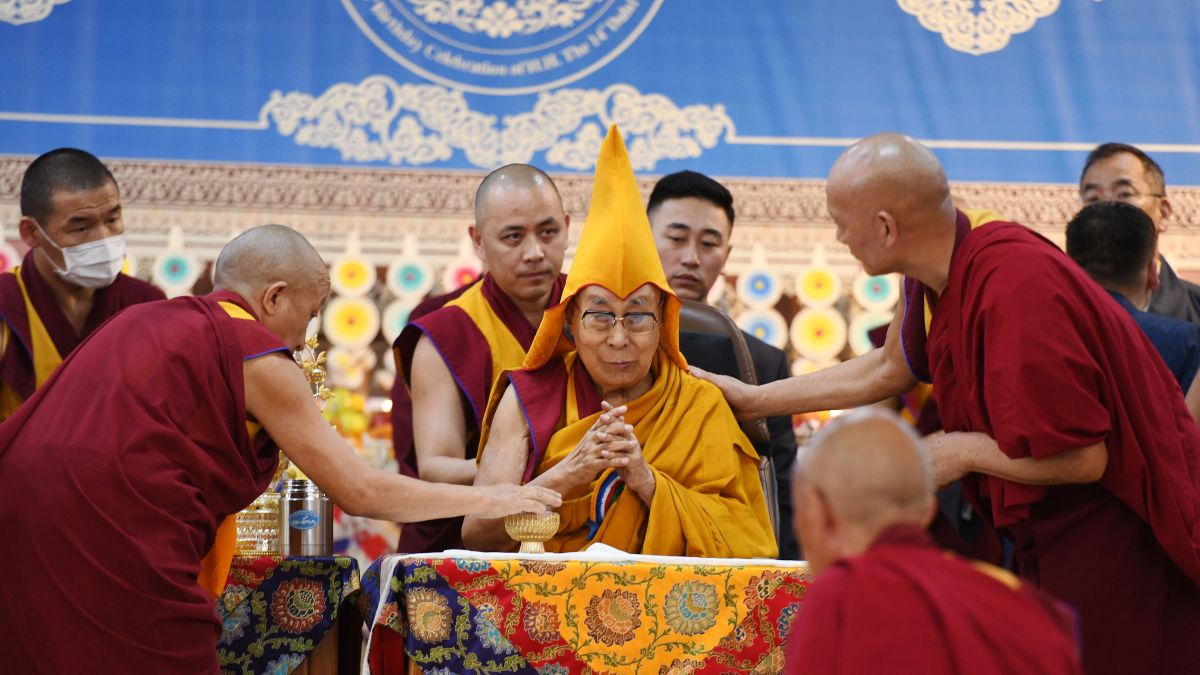OPINION | Mindfulness, compassion, and the Dalai Lama at 90: A moment for reflection

The essence of mindfulness and compassion is vital to humanity because it nurtures the inner conditions necessary for peace, ethical living, and meaningful connection.
Mindfulness allows individuals to develop awareness of their thoughts, emotions, and actions, fostering clarity and self-regulation in a world often driven by distraction and reactivity. Compassion, in turn, cultivates empathy, kindness, and a genuine concern for the well-being of others, helping to bridge divisions and reduce suffering across social, cultural, and national boundaries.
Together, these qualities uplift not only personal mental well-being, but also a collective moral resilience that is essential for addressing global challenges of conflict, inequality, and environmental degradation. By anchoring human behaviour in awareness and care, mindfulness and compassion offer a transformative path toward a more harmonious and just world.
His Holiness the 14th Dalai Lama, Tenzin Gyatso, is a global icon of peace, compassion, and non-violence.
Enthroned in 1940 and assuming full political power in 1950, he became the face of Tibet's spiritual and political aspirations, especially after going into exile in India in 1959, following the Chinese occupation of Tibet. Beyond politics, His Holiness has emerged as one of the most influential voices in global ethical discourse, particularly through his teachings on mindfulness and compassion.
Mindfulness in the teachings of the Dalai Lama
Mindfulness (or “dran pa” in Tibetan) is central to the Dalai Lama’s understanding of human flourishing and spiritual development.
Drawing upon the classical Buddhist foundations of the Satipatthana Sutta and Mahayana practices, he emphasises that mindfulness is not merely a meditative technique, but a way of cultivating present-moment awareness infused with ethical responsibility. He often distinguishes between two key dimensions of mindfulness:
- Calm Abiding (shamatha) - a focused mental stability that stills the mind and enhances clarity.
- Insight (vipashyana) - the penetrative understanding of reality, especially the nature of impermanence, suffering, and non-self.
In various teachings and dialogues, His Holiness stresses that true mindfulness must lead to inner transformation. In 'The Art of Happiness', he states: “Mindfulness brings awareness, and awareness opens the door to wisdom.”
He also links mindfulness to emotional regulation, stating that it can reduce anger, anxiety, and mental afflictions by creating a space between stimulus and response.
Furthermore, His Holiness supports the integration of mindfulness into secular contexts, such as education and neuroscience. His collaborations with scientists through the Mind and Life Institute have contributed significantly to the scientific understanding of meditation and its effects on the brain.
Compassion as the core of his ethics
Compassion (“nying je”) is the cornerstone of the His Holiness’ moral and spiritual teachings. He defines compassion as the sincere wish to alleviate the suffering of others, grounded in the recognition of our shared humanity. Unlike pity, compassion in His Holiness’ view involves equality, empathy, and active responsibility.
He often explains that genuine compassion arises from a deep sense of inter-dependence—the realization that our happiness is connected with others. This principle underpins his commitment to universal responsibility: the idea that individuals must take moral responsibility for the well-being of all sentient beings, transcending nationality, religion, or species.
In his book The Power of Compassion, the Dalai Lama asserts: “If you want others to be happy, practice compassion. If you want to be happy, practice compassion.”
This view is not restricted to Buddhists. His Holiness advocates what he terms “secular ethics”, a universal set of values rooted in basic human qualities like kindness, forgiveness, tolerance, and contentment. These ethics are especially vital, he argues, in a pluralistic, conflict-ridden world.
Bridging mindfulness and compassion
For His Holiness, mindfulness and compassion are inseparable. Mindfulness provides the clarity and stability of mind necessary for cultivating compassion, whereas compassion, in turn, gives ethical direction and emotional warmth to mindfulness practice.
In his interactions with educators, psychologists, and inter-faith leaders, he has argued that the cultivation of a compassionate heart through mindful awareness is essential for both individual well-being and social harmony. This union of heart and mind is particularly significant in his promotion of “emotional hygiene”, a concept parallel to physical hygiene, where mental training in mindfulness and compassion fosters emotional resilience and ethical living.
In a recent policy decision in the US, the 90th birthday of His Holiness the 14th Dalai Lama on July 6, 2025, presents a profound opportunity to formally recognise his life’s message by designating the day as a 'Day of Compassion'.
For over seven decades, the Dalai Lama has embodied and championed the universal values of compassion, inter-faith harmony, and non-violence.
Mindfulness deepens compassion by enabling one to respond thoughtfully rather than impulsively, to see beyond surface emotions, and to act with both courage and gentleness.
Marking his birthday as a 'Day of Compassion' honours these contributions and invites humanity to reflect on the ethical principles necessary for peaceful coexistence.
Conclusion
The teachings of His Holiness the 14th Dalai Lama on mindfulness and compassion offer a compelling vision for inner transformation and global ethics. Grounded in centuries-old Buddhist philosophy and shaped by the challenges of modernity, his approach has influenced millions around the world—Buddhists and non-Buddhists alike.
His emphasis on mindfulness as attentive awareness—coupled with compassion as the foundation of moral conduct—represents a profound contribution to humanity’s collective search for peace, empathy, and understanding in an increasingly fragmented world.
The author is the Head of the International Relations Division at the International Buddhist Confederation, New Delhi.
The opinions expressed in this article are those of the author and do not purport to reflect the opinions or views of THE WEEK.
Society